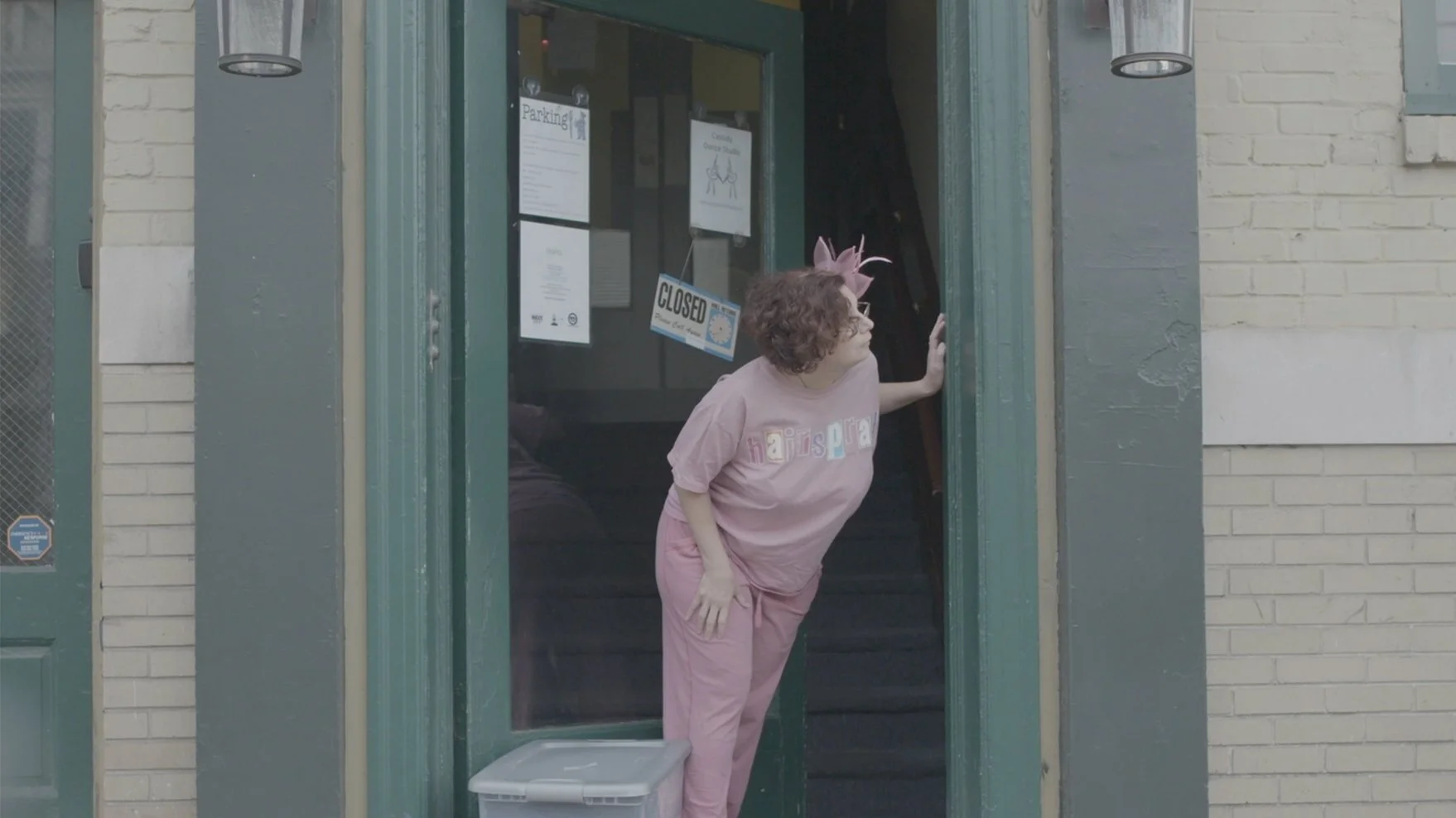Dina
The real-life tale of an American woman strong enough to build a new life for herself.
The late Edward Sickles, whose son Dan co-directed this film with Antonio Santini, was involved in the founding of the Aktion Club in Abington, a suburb of Philadelphia. It was a club created to help people with learning difficulties stemming from autism and the like, although it seems that the more general term 'neurodivergent' is the preferred description. It was Dan Sickles who first developed the idea of making a film about the club, a venture which then grew into Dina by featuring Dina Buno, one of the club members, as its central figure. Adopting that approach was further encouraged by the fact that Dina was announcing her engagement to Scott Levin who was also autistic. Filmed as events happened, Dina would put these two screen centre and follow through to the marriage itself.
The project was made that much easier by the fact that Dina had been taught by Edward Sickles who had been something of a father figure to her and that also meant that she had known Dan from his earliest days. He therefore had her trust and any inhibitions that Dina herself might have felt were further assuaged by the fact that she wished to present herself to the world and had once wanted to be an actress. But, oddly enough, the film synopsis which I had read before seeing the movie makes no mention of neurodiversity and Dina is presented to us as the story of a 48-year-old woman who, having lost her husband to cancer nine years earlier, is strong enough to be building a new life for herself. Few films offer a woman of that age as their heroine so, initially, Dina seems to be echoing in a welcome way the classic drama Marty (1955) in asking its audience to respond to people who are ordinary in the sense that they are quite unlike the glamorised figures that feature in most films.
In the absence of any initial attempt to provide a clear background for either Dina or Scott, we do not at once come to realise the nature of the problems that these two are facing (with Dina especially the fact that she is autistic only gradually surfaces in contrast to the revelation that her issues extend to overcoming the trauma of having been stabbed). Thus the details that we need if we are to understand and admire their efforts to function as a couple are, if not omitted, certainly delayed: what does come across early on is Scott's uneasiness of any physical touching and Dina's talkative assertiveness.
The way in which the couple's very American-style lives are put before us has its admirers (Dina won the Grand Jury Prize for Best Documentary at this year's Sundance Film Festival) but for me the filmmakers seemed too close to their subject thus failing to realise that some viewers at least needed to be given more context if they were to respond positively. Success or failure here depends on the viewer being drawn to the couple and, quite aside from the part played by autism, some have found this to be a very touching love story. That must have meant that they responded sympathetically to conversations that I found maudlin, my own reaction being encouraged by the film's failure to disclose the couple's circumstances earlier and more fully. I would have been far more sympathetic to a film about the Aktion Club as such, but this may well be a minority view and those viewers who find Dina and Scott heart-warming may well love the film.
MANSEL STIMPSON
Featuring Dina Buno, Scott Levin.
Dir Dan Sickles and Antonio Santini, Pro Dan Sickles and Antonio Santini, Ph Adam Uhl, Ed Sofia Subercaseaux.
Moxie Pictures/Dan & Antonio/Cinereach/Impact Partners/Killer Films-Dogwoof.
103 mins. USA. 2017. Rel: 20 October 2017. Cert. 15.


